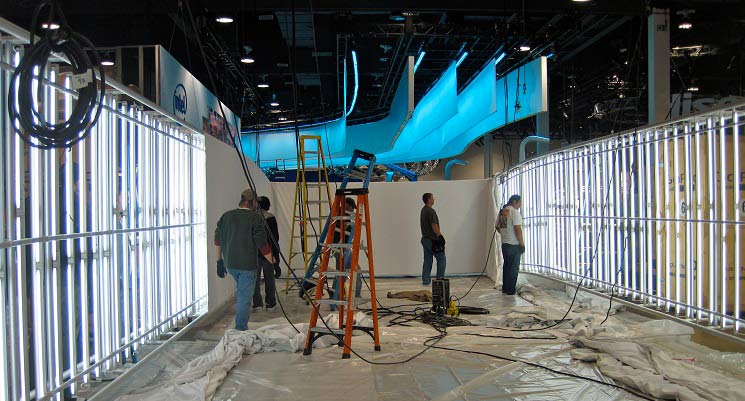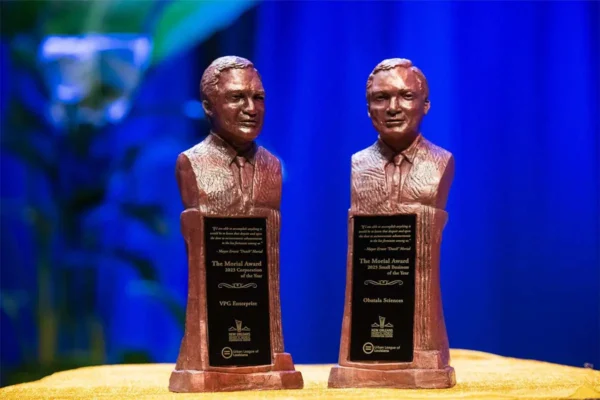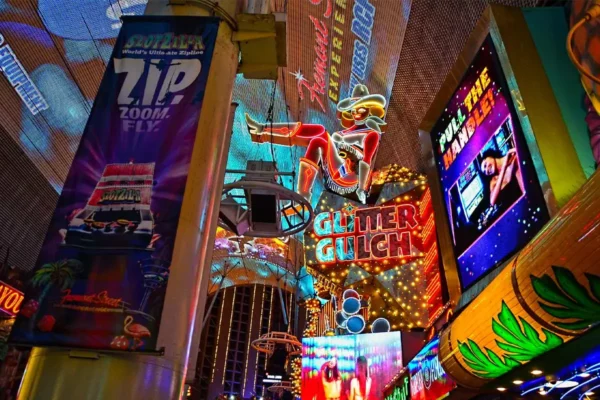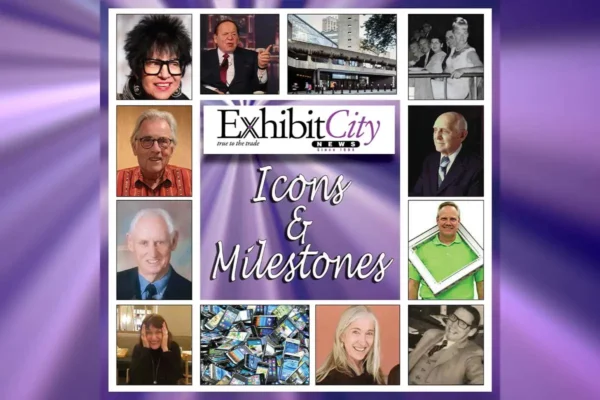by Leslie Mujica & F. Andrew Taylor
A spate of minor fires have plagued Las Vegas exhibitions in recent years. For example, a Nov. 12, 2015 fire at an ophthalmology convention at the Sands Expo and Convention Center caused an estimated $100,000 in damage. This year two fires took place at conventions, ironically related to smoking products. On Feb. 20 there was a fire at Champs Tradeshow, a nearly 20-year-old show which touts itself as the premier counterculture B2B Expo. The fire at the LVCC took place while the event was open and it was put out before fire crews arrived, but the event was disrupted as smoke and chemical fire retardant had to be cleared from the convention space.
The same venue also suffered an overnight fire on July 15 at the convention and international tradeshow of the International Premium Cigar & Pipe Retailers Association. The fire delayed the opening of the show and caused flooding damage when the sprinklers were triggered. Fortunately, no one was hurt in any of these fires, and although carpets had to be replaced Cigar Aficionado magazine reported that no cigars were damaged in the incident.
Many of the fires seem to have a common cause: shoddy electrical wiring in display walls shipped to the U.S. but built in countries with lower wiring standards. For this reason, in Las Vegas, union electricians are now inspecting booths and the wiring sent from other countries.
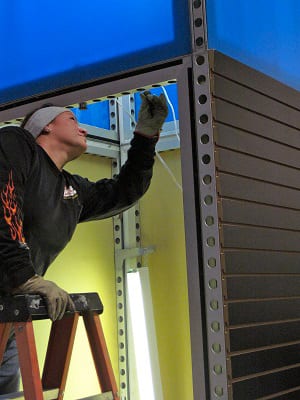 “In our country we have UL Standards and some of the wiring coming in from other countries is substandard to our requirements and the booths are not wired for that capacity which is extremely dangerous,” explains Max Carter, a business agent with IBEW 357. “That is why companies are requiring inspections by IBEW professionals, which is another reason why at every tradeshow, electrical is an exclusive and independents are not allowed.”
“In our country we have UL Standards and some of the wiring coming in from other countries is substandard to our requirements and the booths are not wired for that capacity which is extremely dangerous,” explains Max Carter, a business agent with IBEW 357. “That is why companies are requiring inspections by IBEW professionals, which is another reason why at every tradeshow, electrical is an exclusive and independents are not allowed.”
For the leaders at the International Brotherhood of Electrical Workers Local 357, safety and training are top priorities and this issue goes to the very core of what IBEW represents. They say that providing quality craftsmanship and safe installations is what makes them a leader in the industry.
“I advise international customers planning to build an exhibit for use in the U.S. to have a good understanding of the national electrical code as well as the state and local codes for the cities in which they will be exhibiting,” says Sam Hornbeck, vice president of electrical services for Freeman. “For specific electrical questions or general facility questions we always recommend that you reach out directly to your service provider. Freeman electric has subject matter experts who will advise, recommend and answer any questions.”
In many cases the issues can be a simple misunderstanding of how things work in the U.S. These are issues that can be overcome by communication and concise instructions. “As a provider of utility services we require a floor plan with measurements indicating all power location needs along with amperage and voltage requirements,” says Hornbeck. “We tell our customers to be sure to contact us as soon as possible to talk through expectations for success.”
All of that care and communication can be for naught if a company subcontracts to a builder who will not listen or doesn’t care and wires a booth in a manner that wouldn’t pass muster in any part of the country.
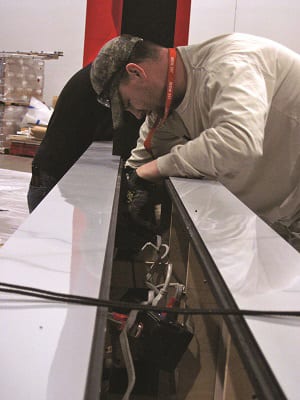 “There is a growing concern in the tradeshow industry with illegal, dangerous wiring of booth structures,” says John Hinkell, vice president of electrical for GES. “Many challenges occur when working with overseas infrastructure. Some overseas booth builders are constructing disposable structures for clients using poor quality materials. The electrical work is generally not up to par with U.S. codes and regulations. Ceilings and walls are pre-wired in warehouses and shipped to venues to be pieced together. The wiring is consistently undersized gauge, two wire ungrounded systems with open, bare splices.”
“There is a growing concern in the tradeshow industry with illegal, dangerous wiring of booth structures,” says John Hinkell, vice president of electrical for GES. “Many challenges occur when working with overseas infrastructure. Some overseas booth builders are constructing disposable structures for clients using poor quality materials. The electrical work is generally not up to par with U.S. codes and regulations. Ceilings and walls are pre-wired in warehouses and shipped to venues to be pieced together. The wiring is consistently undersized gauge, two wire ungrounded systems with open, bare splices.”
In order to combat this dangerous trend, GES, in conjunction with the various venues’ fire and safety departments, constantly monitor the show floor and the work being performed, looking for any potential hazards. When any subpar wiring is found, a violation is issued and a booth inspection is required at that point. Any items found during the inspection are rectified immediately, and the booth is not energized until all wiring is up to U.S. safety standards.
“At GES we take pride in partnering with all of our facilities and we work closely with their fire and safety departments,” says Hinkell. “We work together to ensure and enforce the standards, because the safety of everyone is a top priority.”
Leslie Mujica worked with ECN staff writer F. Andrew Taylor to craft this story. She is the executive director of Las Vegas Power Professionals, a non-profit that strives to create and inspires a collaborative and impartial environment in which labor and management identify challenges and resolve conflicts in a fair manner. LVPP also endeavors to elevate and promote its members and electrical industry in the interest of a higher standard of citizenship. For more info, visit https://lvpowerpro.org/
This story originally appeared in the November/December issue of Exhibit City News, p. 42-43. For original layout, see our digital flipbook after November 1 at https://issuu.com/search?q=exhibit%20city%20news .






